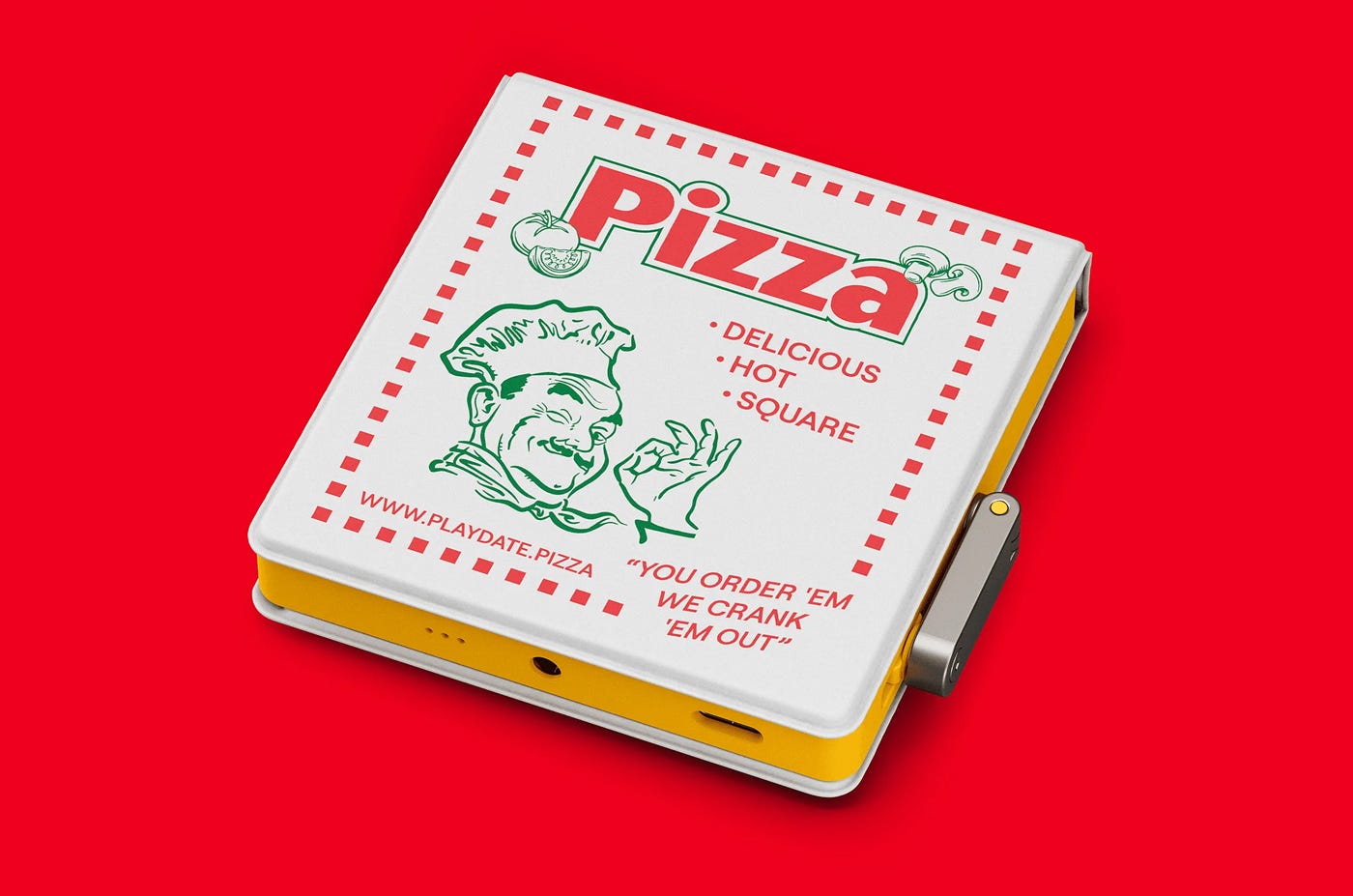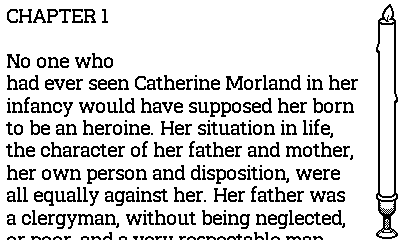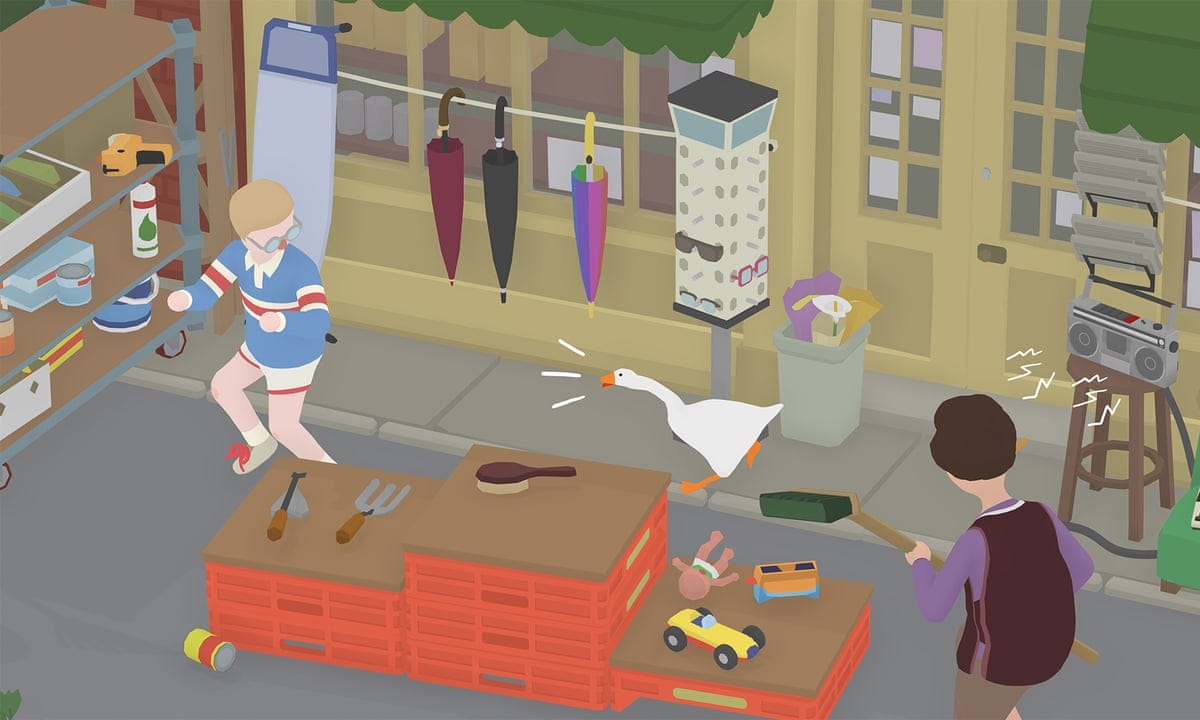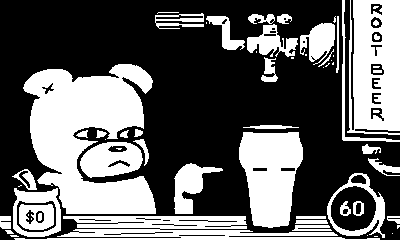Interview: Panic's Decade-Long Journey to Build a Handheld
Greg Maletic on how COVID nearly killed the Playdate (and Untitled Goose Game saved it).
Hi to all the new readers: I’m Ryan Rigney and this is Push to Talk, a weekly newsletter about the art and business of video games. I love talking with game devs doing wild creative work that pushes the limits of interactive entertainment. Today’s Q&A is with a guy who absolutely fits that bill.

When people see a piece of art, they bake the limitations of that medium into their expectations for it. Your brain settles itself into a mode where you can be wowed.
—Greg Maletic, Director of Special Projects at Panic
Panic, Inc. is such a weird company.
Originally formed in 1997 as a commercial software developer for the Mac, Panic pulled off an improbable expansion into indie game publishing in 2016 with the award-winning PC game Firewatch. The Portland-based company’s track record in the years since has been consistently brilliant, with critically acclaimed releases like Arco, Despelote, Thank Goodness You’re Here!, and the D.I.C.E. Awards Game of the Year winner Untitled Goose Game.
Panic also, somewhat infamously, made a handheld games console with a crank.
When I wrote about the Playdate a couple of weeks ago, I was struck by how vibrant its developer ecosystem seems to be. There are now hundreds of games available for the Playdate, despite the fact that nobody—neither the devs nor Panic—are likely making much money on the endeavor. But games keep coming out, and everybody seem like they're having a good time.
For a long time I've wanted to chat with somebody at Panic to ask a very basic question: What are you guys trying to do, exactly?
Fundamentally, it does not make obvious sense from a business perspective to pour this much time and effort into producing a tiny handheld gaming device with a black-and-white screen. And then, against all odds, they went and nurtured an entire dev ecosystem and facilitated the release of over 300 games? The whole thing’s baffling. What’s the goal?
This week, I finally got the chance to ask somebody who would know.
Greg Maletic is the Director of Special Projects at Panic and the overall project lead on the Playdate. He’s a guy who loves weird hardware, as should be obvious when he shows off his gigantic vintage calculator collection:
In our call, we discussed the origins of the Playdate, the hardest moments Maletic and his team faced when attempting to bring the device to market, and some hints of Panic's future plans for the platform.
What follows is a lightly edited and condensed version of our conversation.

PUSH TO TALK: Over the last few years, you guys have built up a lot of credibility in games, not just with the Playdate, but also by publishing titles like Untitled Goose Game, ARCO, and Firewatch. I love the Playdate, but it really is such a weird and inexplicable thing. What's the vision for it—why make something like this?
GREG MALETIC: Yeah, it's all extremely weird, but we're doing it anyway. We started a long time ago on Playdate. I think we first started thinking about it maybe in 2012. And we just kind of had rough ideas. At that point, the company was turning 15 years old, and I think the founders [Steven Frank and Cabel Sasser] wanted to do something to commemorate the 15th anniversary. So we thought about various things to do, and one of the things that stuck was, let's do a hardware project for the first time ever.
We had only done software before this. So we started brainstorming ideas. Should it be an alarm clock? A calculator? What should it be? Eventually we thought about the Game & Watch, the old Nintendo handheld from the 80s, with those LCD displays. That sounded super fun, so Cabel found the screen [a monochrome Memory LCD screen manufactured by Sharp, which the Playdate now uses] as a result of that, because the screen looked very much like an old Game & Watch display.
We had exactly one guy in the office, Dave Hayden, that knew about hardware, so we sent him on a project to try and make a game console. He spent about a year mocking it up, and he eventually got there. He had something that actually ran a game, and we were like, okay, this is really cool, actually. And so we kind of like slowly staffed up on it as it became more and more real.
We had this idea: What if we sent out this game to people, but then when you get the device and play it, it sort of magically changes into another game a week later. That's where the idea for Season One1 originated. But another inspiration for the season was that we honestly thought nobody was going to write a game for it.
We really thought it was going to be zero games. There are so many Kickstarter-like things you see where they put up the project and they're like, “we can't wait to see what you all do with it.” But that doesn’t always work. So we were like, well, we have to deliver something. So that was the inspiration for season one. If you would have told me that there’d be 1,300 Playdate games on Itch right now and 300 games in our catalog, I’d have never believed you.
It is really hard to build a game developer ecosystem. Why do you think it’s working?
I think it’s that we're just super dedicated to it. We love all these people that have written their first video games on the platform, and we love all the people that seem to get joy out of playing it. It’s really intoxicating and it keeps us going.
The owners [at Panic] are just committed to making it a thing. We never thought we were ever gonna work on a video game console in our lives. That just didn't seem like that was in our future when we started this. And it has just been really fun to do.
I mean… but let me put a caveat there. It's been incredibly hard to do also. It’s been an insane amount of work and there have been plenty of moments where it hasn't been fun at all. But as we look back on it and look at where we're going it feels like a success, even beyond what we expected.
I'd love to hear more about the hard moments. I mean, I know about the crazy pallet theft—the Vegas caper [Editor’s note: a $400,000 shipment of Playdates was stolen and then recovered after Fed-Ex delivered the cargo to the wrong address]. Other than that, what’s been the toughest?
Yeah, there's been a lot of things that have been tricky. I mean, one, it's a fairly difficult device to manufacture. Teenage Engineering came up with the industrial design for it. It was beautiful and we wholeheartedly went for it. But it's also very precise, it's very small, it's thin. It took some effort to get all that stuff crammed in there, and to get the crank to work properly and reliably. There have been a lot of moments where we go, why isn't this working? How do you build 90,000 of these things?
We also had problems getting parts during COVID, because we were obviously buying at a relatively small volume compared to other people. And so it was difficult for us to get parts in a reasonable time frame sometimes. We were using this custom CPU, the STM32F7.
They were crushing it with the branding on that one.
Yeah. That was our CPU and that was fine. But then once COVID hit, we were told there was now a two-and-a-half-year wait to get any more. So we thought we were going to have to stop building the Playdate for two and a half years.
So we ended up switching to another CPU. It's a STM32H7. And yeah, they're compatible, but in fact there are lots of little differences, performance differences we have to account for. We didn't want to change the performance of the device at that point. The new CPU is a little faster.
That was after you'd already made a bunch of the units?
Yeah, we'd already shipped, I think, 40,000 of them.
Oh my God.
And so we had to go to a new architecture just as were getting started basically. That took, I don't know, six months of engineering effort to make it happen. Six months of basically accomplishing nothing.
Yeah, that sounds like a nightmare. I wanna go back to what you said about not wanting to make the CPU faster. If you follow conversations in the Playdate community, one topic that comes up is the question: “What would they do with the Playdate 2?” That seems to me to maybe be missing the point. It's not like you guys are trying to push the limits of technology, right? I assume you wouldn’t want a 4x faster CPU. But I am curious: If there ever was a Playdate 2, how you would think about approaching it?
Yeah, there are no plans currently for anything like that, but I agree with your general premise. Like, Playdate 2, were it to ever happen… honestly I shouldn't even use that premise. [Laughs.] There's nothing like that happening.
It's supposed to be very limited and very easy to write for. That's the whole idea. And we use those constraints as a way to make it easy to develop for and fun to develop for. Anything we'd want to do would be to try and make something that was kind of, you know, even closer to its roots. You know, something that's more like a Playdate than even the first Playdate. So I'll just agree with your basic premise that we wouldn’t make a souped-up version of a Playdate.
One thing we wanted to do was make this thing not like your phone. If it gets too close to your phone, it loses its rationale for existence. So that was one reason we added physical controls, why we added a crank, and why we did the weird screen.
There’s this guy who made an ebook reader app for the Playdate. And there’s something tantalizing about it. I liked the experience of using it more than I thought I would—it was almost viable as a pocket ebook device, right? You know what I mean? It was almost there. This is something kind of striking about the Playdate. It's serving this completely unique use case, and it makes you wonder: What are all the other imaginary hardware devices we never got?
Yes. Like, I love my iPhone—I think it’s probably the best thing that's ever been invented. But as it also has flattened our world into one thing. And when I was a kid, there were just like a billion different cool consumer electronics things out there that you would buy and admire and they were all very beautifully designed. And now everything is an app, and that's great but it also kind of sucks at the same time. So yeah, Playdate is a bit of a reaction against that.
I can see how the ebook reader app works on Playdate. I mean, it's a very private and personal device. It doesn't have notifications and things like that. When you're on your Playdate, it feels like it's just you and your Playdate and really nobody else, which is similar to a book.
Are you gonna go back to the well on hardware at some point? Or, are there other hardware devices that you kind of wish existed that don't yet?
That is a great question. I'm not really prepared to answer it. In terms of what Panic's doing, we don’t have any plans like that… but I always fantasize about cool devices. I'm pretty old. I was born in 1968 and in the 70s there were a lot of great handheld electronic games. Well—they weren't great, they were okay. But they were wonderful to hold and acquire and use and every one of them was just wildly different. They didn't have to be compatible with each other. Each one was like an experiment unto its own.
And so I do have fantasies about making a handheld, single-purpose game that reminds me of those games from the 70s. I wish there was more of a market for that kind of thing.
Let me switch gears and ask this: I noticed a progression between the Season One and Season Two games on Playdate. Many of the S1 games were weird and quirky—mostly showing off what the device can do. But the S2 games seem to be more about pushing the limitations of the device. And so the natural question then is like, well, what would a Season Three look like? What else would you want to see developers do with this thing?
I think the fact that Season Two games feel a notch more refined is reflective of where the developer community is right now. It wasn't a conscious effort that we were trying to pick games like that—that's just what's happening right now organically. The devs all see what others are doing and they're all trying to kind of one-up what the last game did. So yeah, Season Two is a reflection of that and my goals for Season Three—were there to be such a thing—would be for people to make stuff that makes you go: “Wow, I didn’t know I could do that on a Playdate.”
There's something weird about people… When people see a piece of art, they bake the limitations of that medium into their expectations for it. Your brain settles itself into a mode where you can be wowed.
I'm a big Disneyland fan. And on Main Street they have these very beautiful window displays, with these elaborate sort of mechanical tellings of Peter Pan and Sleeping Beauty. And they're just incredibly beautifully done and wildly elaborate. They're not as elaborate as the Haunted Mansion, for example, but because it’s a window display and it's all mechanical, your brain sets itself into a mode where you’re able to be wowed by it.
I think people do that with Playdate too. You see some amazing black-and-white animation running at 50 frames a second, and you’re like oh my god, that looks amazing. Objectively it doesn't look as amazing as what you see on your PS5 every day. But because you know what a Playdate is, your expectations of what it's capable of are baked into your head a little bit, and you're able to judge against what the device is capable of, and then judge it as amazing.
I totally agree. Going back to your point about the seasons, one thing I noticed when I interviewed the Season Two developers was how excited they were to be featured. It was an honor to be included in the bundle, right? And it motivated them to finish when they maybe wouldn't have otherwise. So I do hope you guys keep doing those.
Yeah, Season Two has done really well and people have been really happy with it, so it does motivate us to say, This is actually a thing. Season One was sort of a weird thing where it was bundled for free with your Playdate, and all the games were built before the thing launched. There were some really great games in there. But Season Two was different. We were like, “Are people gonna buy this?”
And people have been buying it, so it’s been a very good experience for the product and for us and for the community.
I think you guys are getting really good at publishing. Like, Big Walk is coming out under Panic’s label, and it makes perfect sense. It feels like a Panic game. So I wondered, is there a larger strategy y'all have there that connects the Playdate to your other publishing efforts… other than “let's keep publishing cool shit?”
Because it does seem, and no offense [laughs], it seems like the strategy is just “let's publish cool shit.”
That is kind of the strategy, I think. On the publishing side, I keep a close eye on that stuff but I'm not directly involved with it. But we have an idea of what a Panic Game is. There’s a distinctive look and a distinctive sense of humor. So that's worked out really well.
But it’s not part of some mega-strategy with Playdate. Playdate is its own thing, and the game publishing is its own thing, except for the fact that Untitled Goose Game really helped us make Playdate. The revenue from that kept Playdate going during its development years.
It seems like it's getting harder and harder to have repeatable successes as a publisher. There's no reliable place where you can put in dollars and get players out. So how do you think about building advantages for yourselves as publishers?
Yeah. Maybe this is dumb advice, but I think you need a hook. And the reason I say that is that one of the biggest and most surprising successes for us on the Playdate has been Root Bear. I assume you're familiar with it.
It’s a fantastic game.
When we go to shows and we put Playdates out for people to try them out, that's what we have running on there because people just respond to it like crazy. It's so visceral. They just love it.
I don't want to reduce the industry to saying you need novelty, because that's too reductive. But you need something that really pops and catches people’s attention. Like, you know, this Pixar movie Elio came out this past weekend, and I'm sure it's a good movie. They don't make anything bad.
Yeah.
But I recall seeing the trailers months ago and just nothing about it really stuck with me. It just didn't have a hook and if you're not going to be licensing Minecraft or whatever, you need something for people to hang their hats on and remember.
And I guess Playdate… it’s this weird yellow thing and it has this crank on the side and people remember that. I say that like it's some gigantic success… It is a big success in its small little world. People know what it is even if they don't have one.
Is there anything you’re willing to say about what you’re doing next?
This is not breaking news, but one thing we're going to try and do over the next year or so is grow outside of the Panic bubble. We feel like we've sold Playdates to everybody that knew about us. And now we need to sell to people who have never heard of Panic before. Based on the reactions I see from people when they try a play date, there are a lot of people out there that would like one, but that don't have one. So our goal over the next year is to try and kind of grow the Playdate universe.
Awesome. Thanks for your time, Greg.
Panic has released two “seasons” of games for the Playdate—basically official bundles of games they commissioned from devs.









I love the Playdate. Some day, I will buy it. And since I am a developer, I will try to make something for it!
But it fascinates me: what motivates people to create games for the Playdate? What is the key motivator? Because I don't think it's money. And yet... so many people make games for Playdate...
Oh it would be exciting to get a play date a bit easier (cheaper?!) in the UK. The shipping cost just ,Les it not viable for me at the moment. What a great interview. It was nice to learn more directly from people involved. Thank you!